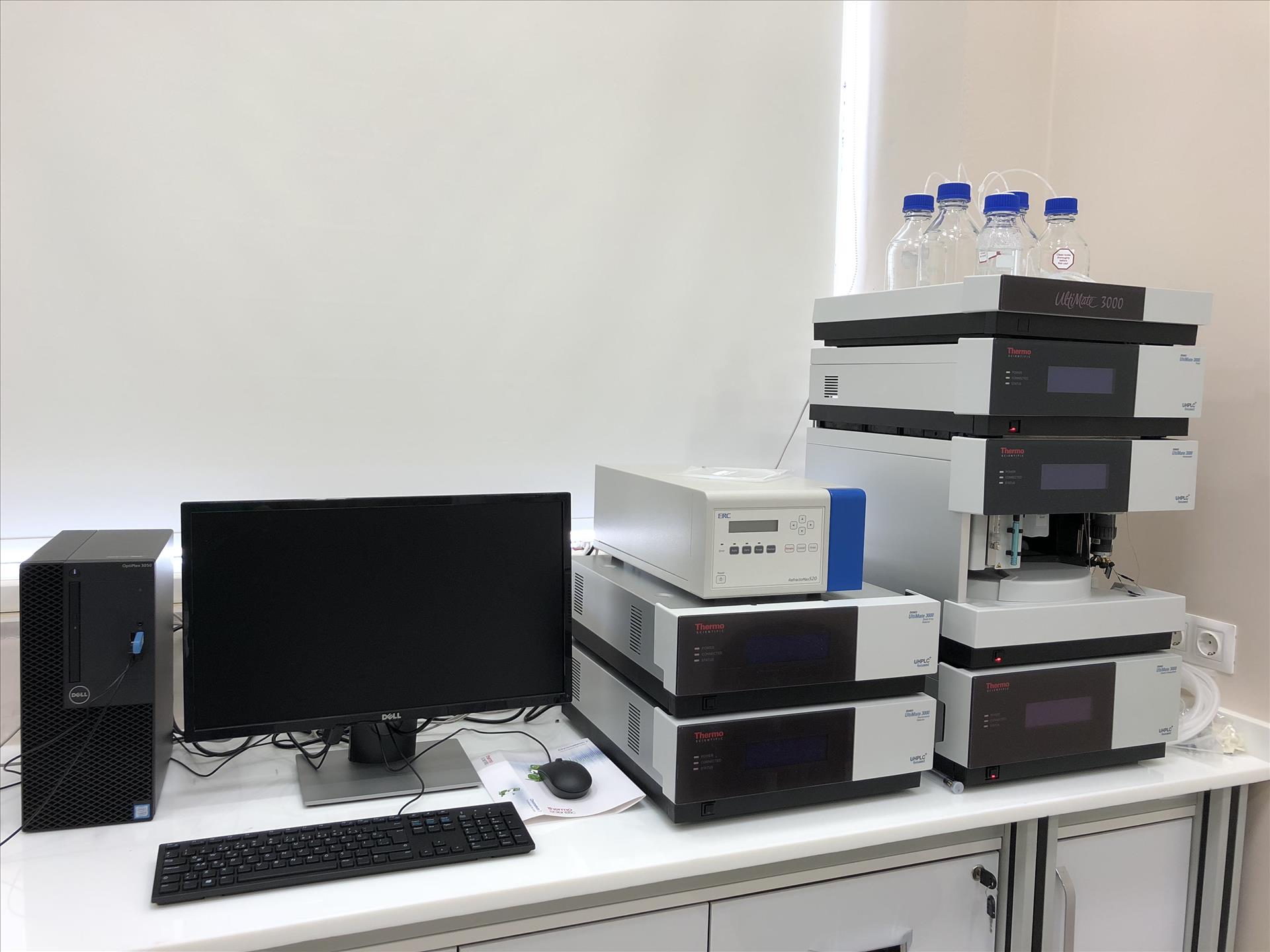HIGH PERFORMANCE LIQUID CHROMATOGRAPHY (HPLC)
High performance liquid chromatography (formerly referred to as high pressure liquid chromatography) is a technique used in analytical chemistry for the separation, identification and quantification of each component in a mixture. The technique is based on the logic of advancing a pressure liquid solvent (mobile phase) containing a sample mixture from a column filled with a solid adsorbent (stationary phase) with high pressure. Each component in the sample is in molecular interaction with the adsorbent material. However, this interaction is different for each component. This causes different flow rates for the different components and leads to the separation of components as they flow out of the column. Depending on the sample analyzed, qualitative determinations of these components can be made with the ultraviolet (UV) detector, fluorescent detector and refractive index detector (RID) integrated with our existing system. In HPLC studies, quantitative determinations of the target components can also be made by calibrations prepared using standard substances. HPLC can now be adapted to different studies, be used for quantitative determinations, analytical separation of non-volatile and temperature-degradable samples. Due to the reasons, it is widely preferred and used in the sector.
Device: Thermo Ultimate 3000 HPLC (600 Bar)
Scope of application:
- Chemical Industry,
- Food Industry,
- Pharmaceutical Industry,
- Cosmetics Industry,
- Environmental Analysis,
- Biochemical Analysis,
- Cosmetics Industry,
- Clinical and Forensic Medical Studies.


